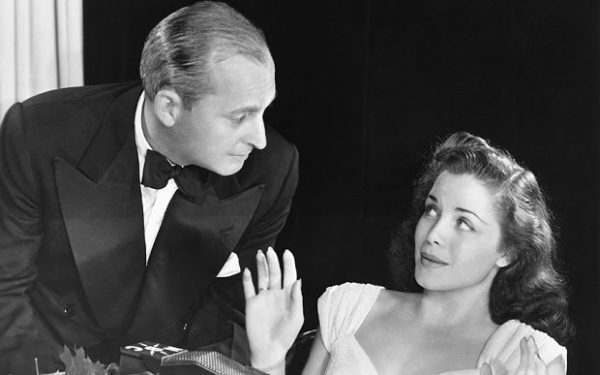I always find it amusing when guests ask my name the moment I greet the table. I also hate it. In their eyes, knowing waiters’ names is humanizing and their way of acknowledging that they see waiters as more than just servants. That’s all well and good, but asking personal questions can put the waiter in the uncomfortable position of having to divulge personal information before you’ve established any relationship. It’s a lot like dating. Coming on too strong can be a real turn off.
Of course, these guests’ hearts are usually in the right place, but the strategy often backfires. It can feel intrusive when friendly guests feel entitled to know more about their servers (Where are you from? How long have you worked here?). Asking unwanted questions may cause waiters to avoid your table. If you insist on knowing your server’s name, always introduce yourself first. It’s less threatening and reinforces that you see them as equals.
Remember that good service is impossible without your participation. Take ownership of your role in building quality relationships with the people serving you, and you’ll see an immediate impact on the hospitality you receive. Big tips aren’t the only way to show your waiter you care. Here are a few good habits that will help you succeed:
Ask your server how his day is going? – It’s remarkably disarming when guests ask servers about their day. It breaks up the typical scripted dialogue and disrupts the phony pleasantries that define the usual introduction. Since most restaurant guests show little to no interest in their server’s role beyond providing them food, this is an opportunity to distinguish yourself. Asking about their day also shows concern without expecting intimacy. It’s a much more effective question for building solidarity than asking the server his name.
Listen attentively to the specials – Today’s diners are so distracted by technology it can be difficult for waiters to keep their attention. You’d be surprised how rude restaurant guests can be when their waiters are trying to convey information about the menu. Interrupting a server’s presentation—even if it’s unintentional—sends a message that you devalue their participation in your experience. Set a positive tone. Put away your cellphone, listen to their spiel and ask thoughtful questions about how the new dishes are prepared.

Acknowledge when you enjoyed a dish they recommended – Recognition is rare when you wait tables. No one who works in restaurants is in the business for the appreciation. It’s a thankless job. But once in awhile when a guests says, “I really loved the dish you suggested,” it feels good. Next time the waiter comes back to the table to check on you, give credit where credit is due.
Offer to pour your server a taste of your bottle of wine – Waiters are rarely given the opportunity to taste high-end wines from the bottled list. If you order a nice bottle, ask your server if she’s ever tried it before. If she hasn’t, tell her to bring a glass! Pour the wine yourself so she doesn’t feel apprehensive about how far your generosity goes. Make a toast to great service!!
Ask your waiter to order for you – This is the ultimate gangster move. It takes a lot of trust to go to this extreme, but taking the leap of faith can pay dividends. Trusting blindly sends a message to servers that you feel comfortable in their hands. The worst service experiences are the ones where guests cannot give up control. Handing the waiter the steering wheel is empowering and will help fortify your relationship the rest of the meal. If you’re disappointed with the choices, share the blame. You had the same chance of being unhappy with your food if you ordered on your own. Ride or die together.


Love all of these! Except please don’t ask me to order for you. I don’t want that kind of pressure
Anytime a guest asked my name up front It was a sure thing I would later being hearing it shouted across the room.
I only ever ask my servers name once I’ve paid the check. To introduce myself, and give a more personal thank you. Hoping they might remember me if I return.
Another great piece.
Thanks
Guests do not ask our names to “humanize” us, they ask in order to establish their superior position, so that they can, in essence, snap their fingers, just using their voice.